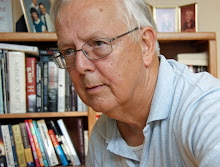Nothing That Needed Eyes
No good would come from disturbing this old house, I thought, applying my crowbar to an ancient oak plank. Still, there could be money squirreled away somewhere in this mess. Rusty nails creaked and snapped; the board popped up to expose a shallow dirt cellar crawling with centipedes and roaches.
Nellie Westhaver had lived here alone, at first pitied and then ignored by the townsfolk for the shiftless husband who had held lots of odd jobs and fast women until he and some mini-skirted trash named Luann disappeared for good and good riddance, probably on the Greyhound to Boston. He’d left his rattletrap Buick behind, but Nellie didn’t drive.
I’d recently spent ten years’ worth of medium security in Walpole and didn’t have a dime left to my name. Crazy Nellie had been my next-door neighbor, the type who never answers the door, fills every room with newspapers going back to Genesis, and lets you know she’s dead when she starts to smell. The house dated back to Revolutionary times, with its low ceilings and stone fireplaces in every room and not a single wall or doorway plumb or true. Not having many job prospects as an ex-con, I decided to see if the old bat had hidden any cash.
The stench had finally told her fate last week—masked EMTs carried her body out feet first on a stretcher, and police closed and padlocked the door. Already I hear Seven-Eleven wants to buy the lot.
Evidently, someone had made half an effort to tame the terrible odor, but the place still smelled like air freshener overpowered by death. Rot gnawed at the wood while mold spores and silence filled the air. Old Look magazines and Lowell Sun newspapers sat in dusty stacks. A small TV with rabbit ears looked like it hadn’t been used since Lawrence Welk died. At the window, a fly struggled in a spider web as a daddy-longlegs sidled up to suck out its juices. I knew how the fly felt, an inmate at the mercy of a sadistic prison guard.
Home improvement for this house would have to start with a match, but I’d never torch it because I’d be the number one suspect. This was the first place I’d ever broken into, the first place I’d ever been arrested, back in my juvie days when Nellie and Ashton still held backyard cookouts and enjoyed sipping martinis and electrocuting moths with their luminescent bug zappers.
Nellie’s bed smelled about right for her having died in it. I felt in the stained pillows and covers for hidden cash, knowing perfectly well some cop would already have checked all those obvious places and pocketed the prize. Cabinets and closets and dressers turned up the usual jetsam floating in a sea of dust bunnies as Nellie sailed on to her next life.
I pushed the queen-sized bed aside to rummage through the tattered cardboard boxes underneath and found old letters and bills, a broken telephone, stained Melamine plates, nothing even fit for a yard sale. If this house had anything less than ten years old or worth more than five dollars, I’d have been shocked. Frustrated, I kicked a box. There was no point in looking any more—but wait, this was odd. Several floor boards looked lighter and newer than the rest: pine surrounded by oak, galvanized nails bent but not rusted, hammer-head impressions in the soft wood suggesting slapdash carpentry.
Eagerly I pried another board and looked into the darkness. Some godforsaken life form squeaked and scurried away. I turned my flashlight on a pea-green Army blanket, and a thousand miserable bugs scattered in all directions. Only a fool would disturb that filthy piece of trash, but I was a plain and simple fool.
I went to a closet and found a wire coat hanger that I used to fashion a hook. I tried to catch one edge of the blanket, but the hanger slipped out of my hands and out of reach. Disgusted, I lay on the floor and reached down to pull away the blanket.
A sudden visit from the police couldn’t have brought me closer to cardiac arrest. I didn’t care anymore about money.
A pair of skeletons in rotted clothing lay one on top of the other. A hatchet rested inside the skull it had shattered down the middle. Toadstools grew out of both eye sockets—but there was nothing here that needed eyes.




 And here is the Catholic church in Cerrillos:
And here is the Catholic church in Cerrillos:










 By the way, a reader emailed me today and called When Pigs Fly an "absolutely fun and utterly impossible book." Sigh. Words like that are beautiful music.
By the way, a reader emailed me today and called When Pigs Fly an "absolutely fun and utterly impossible book." Sigh. Words like that are beautiful music.








